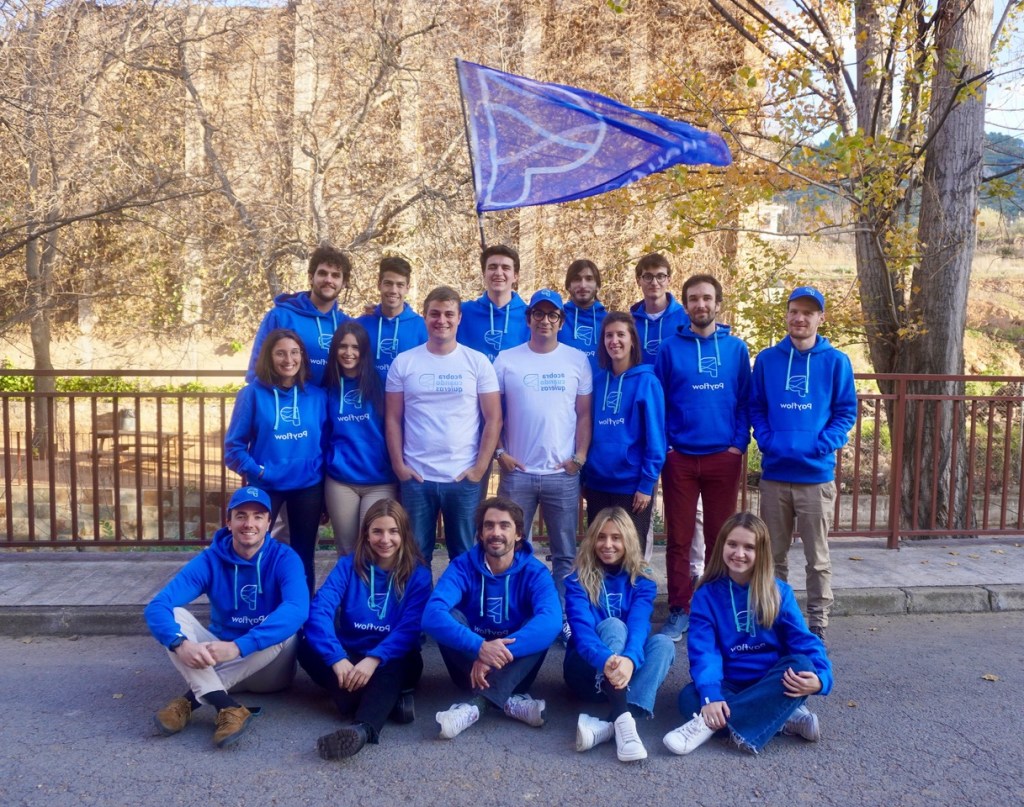Barcelona-based Payflow, a YC-backed salary-advance fintech with ambitions to evolve into a neobank, has banked a $9.1 million Series A funding round — bringing its total raised since January 2020, when the business was founded, to $13.6M.
Investors in the round include a mix of national and international funds, including Spain’s Seaya Ventures, a new backer of Payflow and Cathay Innovation via its C. Entrepreneurs Fund, which are co-leading the round; with participation from Force Over Mass Capital, Y Combinator and Rebel Fund.
The startup sells a salary-advance service to employers to offer their staff — charging companies a commission for the tech rather than levying a fee on users to withdraw a portion of their salary early (as some other salary startups do).
Payflow says the model has won it friends in works councils and labor unions.
It also touts it as a differentiating feature vs other salary advance startups.
“We differentiate from other pay-on-demand companies because we have never charged an employee for using the service (we are the first true employee benefit, fully paid by the company),” says co-founder Avinash Sukhwani.
“[Payflow] is free for users and it will always be the case,” adds co-founder Benoît Menardo. “Our vision is to provide the first true employee benefit for blue collar workers and we believe that if the employee has to pay for it, it’s not a real perk.”
Among users it notes a high uptake — with a 40% download rate on average, and rates as high as 90% for some of its clients — which it claims is 5-10x higher than other on-demand salary platforms and other social benefits.
Its approach also appears to be checking the right boxes for employers, too — with 175+ clients signed up already (covering 100,000 users).
It operates a SaaS business model, charging employers a tiered fee depending on the number of employees using the product.
Payflow is targeting the product at large corporate clients. it says customers span all industries but — as you might expect — it says take-up it’s highest among blue collar workers.
“We cater to all industries, from restaurants to startups to hospitals, but uptake is best amongst blue collar workers,” says Sukhwani.
A salary advance may help lower income workers avoid getting into debt if they are able to access wages more often than once per month, such as to pay an unexpected bill. At the same time, there may be some risks related to instant access to wages which could encourage a negative financial spiral — say if the employee spends their wages immediately they’re earned and arrives at the end of the month with no money.
Asked about this, Payflow says it makes a “safety limit” available in its employer dashboard “in case they want to restrict usage”.
“Most companies set this limit to around 50%, so that employees always receive at least the remaining 50% of their salary in the monthly paycheck,” says Menardo, adding: “That allows them to ensure there is enough leftover for rent and other essential monthly expenses.”
The startup’s Series A funding is earmarked for expanding Payflow’s international footprint.
It is also planning to spend on product dev to fuel its goal of evolving into a neobank.
Some neobanks are going the other way of course — and bolting on salary advance as an additional feature to their offerings (see, for example, Revolut).
In fintech the startup game can boil down to different strategies and approaches to maximize customer onboarding — after which, and with strong enough traction, there’s the chance to upsell users of a popular feature on more fully fledged banking services, funded by earlier feature success.
The upshot is fintech competition may be very dynamic.
Although a particular cohort of users may be more loyal and less likely to switch than others — and if such a demographic can be upsold on banking services via a sticky enough feature which gets them to know a startup service and inculcates loyalty that might make for a low churn banking customer base for cross-selling a full suite of services for years to come. Or, well, that’s the fintech dream.
On the product dev side Payflow is developing a “super app” to start to expand its feature set.
“In 2022, two features [will be added] that strengthen the b2b value proposition through bringing financial wellness to blue collar employees,” says Menardo. “Later on, by developing many b2c features [the plan for the app is] essentially turning into a neobank.”
Payflow isn’t disclosing a timeline for evolving its salary advance SaaS business into a direct-to-consumer neobank but Menardo implies it wants to grow its customer base by more than 10x, noting: “This concept is especially powerful once we have millions of users.”
“We plan to launch our first d2c feature before the end of this year,” he adds.
It’s also hoping to get a good chunk of growth out of its home market where it plans to double down and spend $3M of the fresh funding to consolidate the market — with a goal of growing its customer base 5x in Spain.
On the market expansion front Payflow is planning to launch into two more markets outside Spain, in addition to Chile and Columbia where it is already offering a service.
Its expansion will be focused on Europe and LatAm.
Currently, it has pilots running in Italy and Portugal. It also says it’s planning to open one more market in LatAm this year — so it looks like it will grow from three markets (currently) to five in total during 2022.
Minu, a Mexico City-based, pay-on-demand startup, lands a $14M Series A






























Comment